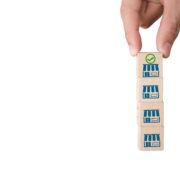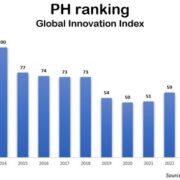To support the government’s ongoing efforts to ease the social and economic impact of the coronavirus disease 2019 (Covid-19) outbreak on poor households and workers of micro, small and medium enterprises (MSMEs), the Philippines has signed a USD500-million loan accord with the World Bank that aims to
Finance Secretary Carlos Dominguez III said that the immediate approval of this agreement for the Philippines’ Emergency Covid-19 Response Development Policy Loan (ECRDPL) “underlines the strong confidence of the international community in the government’s capability to meet the massive funding needed to save lives and provide immediate relief to Filipinos most affected by the coronavirus-induced global health crisis.”
“This is the third loan accord that we have signed with the World Bank that is designed to assist us in swiftly responding to the challenges brought about by the Covid-19 emergency. The World Bank has always been our reliable partner in strengthening our country’s economic resilience,” Dominguez said.
Dominguez and Achim Fock, the World Bank acting country director for Brunei, Malaysia, Philippines, and Thailand, signed the agreement on Wednesday, June 3 for this new development policy loan.
“We once again thank the World Bank for its prompt action on this financial support package that will help us to promptly provide relief to poor and low-income households and employees of MSMEs who lack the means to fend for themselves during the lockdowns implemented nationwide to contain the spread of Covid-19,” he added.
Upon approval of the World Bank’s loan, Fock said “this new financing can help ensure the timely delivery of financial support for struggling families and communities while the country ramps up efforts to contain the pandemic and reduce its economic impact.”
Dominguez said the ECRDPL replaced the earlier proposed additional financing for a project that aims to support the government’s goals of promoting competitiveness, enhancing fiscal sustainability, and strengthening financial resilience to natural disasters and climate change.
The ECRDPL will have the same terms and conditions as the initially proposed Promoting Competitiveness and Enhancing Resilience to Natural Disasters Subprogram 1, which it subsequently replaced.
“The change is in view of World Bank’s advice to specifically come up with a new development policy loan on the country’s Covid-19 response instead of a supplemental financing package for the Promoting Competitiveness and Enhancing Resilience to Natural Disasters project,” Dominguez said.
The agreement for the ECRDPL will bank on the policy actions accomplished by the government in providing emergency subsidies to poor and other vulnerable households, and wage subsidies to workers in MSMEs affected by the strict quarantine measures imposed by the national and local governments to prevent Covid-19 spread, he said.
Dominguez further noted that the USD500-million loan covers a maturity period of 29 years, inclusive of a grace period of 10.5 years, and is targeted for accelerated disbursement by the third week of June.
Last April 28, the Philippines and World Bank signed a separate USD100-million loan agreement for the Covid-19 Emergency Response Project (ERP) that aims to strengthen the country’s capacity to prevent, detect, and respond to the threat posed by the pandemic and boost its national systems for public health preparedness.
The USD100-million accord follows an earlier agreement signed between the Philippines and the Washington-based multilateral lender for the USD500-million Third Disaster Risk Management Development Policy Loan (DRM DPL3) that aims to augment the Philippine government’s urgent financing requirements in dealing with the Covid-19 crisis.
—
Stay updated with news and information from the Department of Finance by visiting their website at dof.gov.ph.






